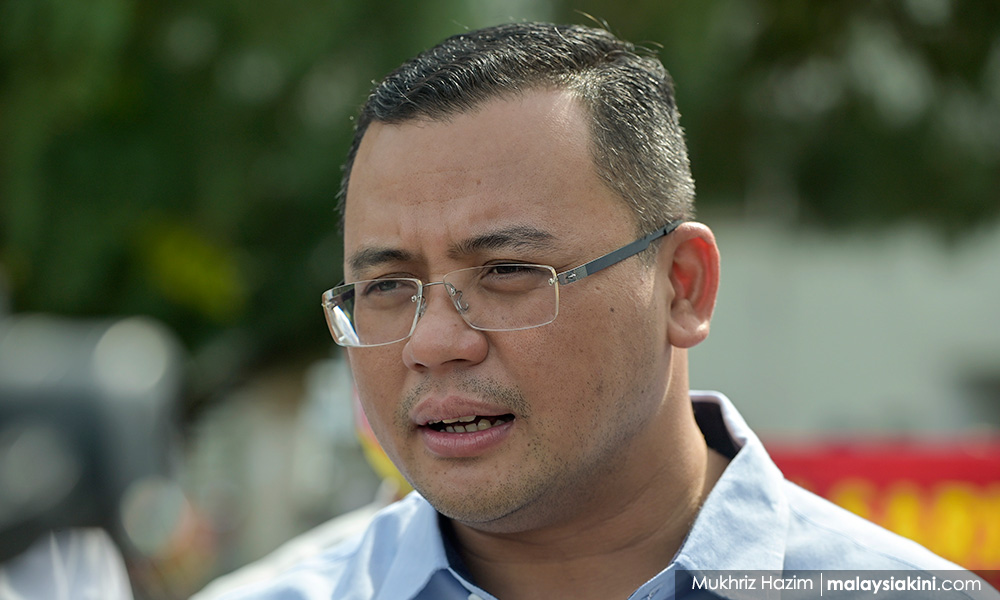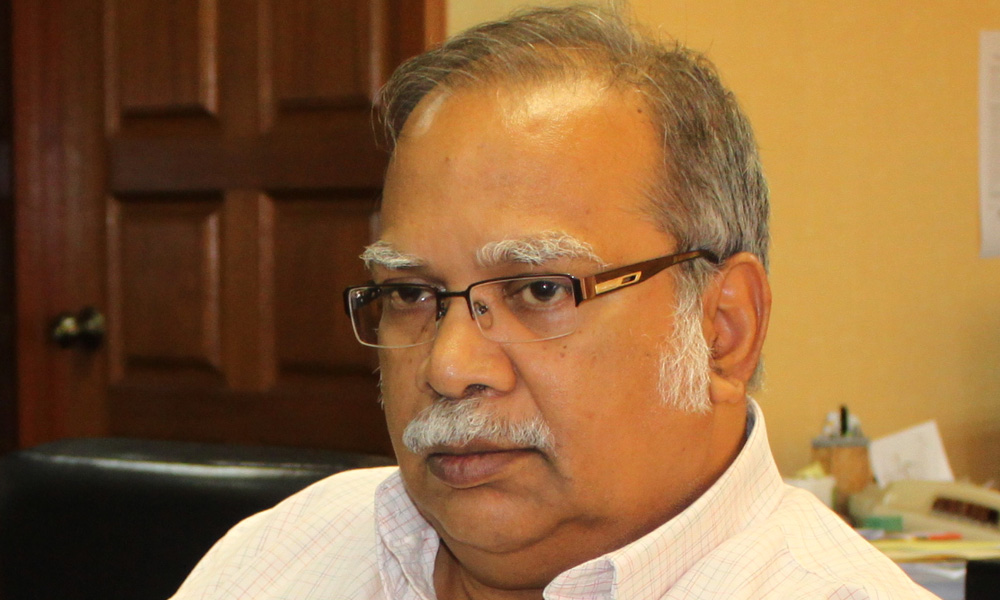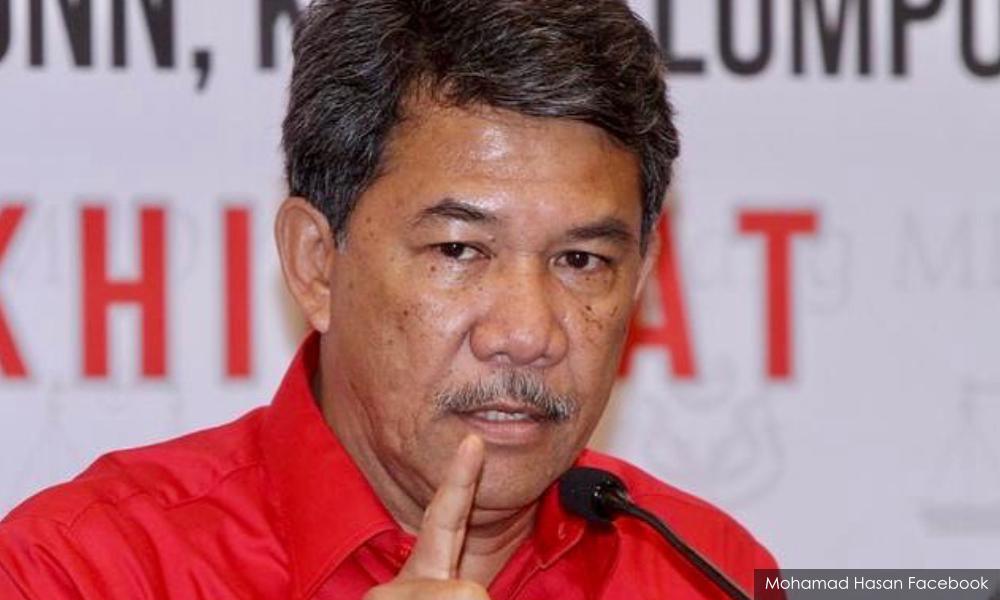On Nov 30, 2021, two incidents took place. In Selangor, Menteri Besar Amirudin Shari announced that the Tanjung Pasir settlers’ issues were being resolved while in Negeri Sembilan, the bus of settlers from Gatco was prevented by police from going to the state assembly to pass a memorandum to Menteri Besar Aminuddin Harun.
This issue has yet to be resolved. Both these issues involving settlers have been going on for decades. At the end of the day, every issue needs political will to reach a solution.
This article will touch on the question of political will and the role of the state.
Tanjung Pasir – a good U-turn
Last week, Amirudin announced that the Selangor government has agreed to cancel the lease of 39.01ha of land in Tanjung Pasir Ladang Tennamaram to two companies Syarikat Baisan Suria Sdn Bhd and Syarikat Trilion Project Sdn Bhd.
The land will now be returned back to the settlers through the Selangor Agricultural Development Corporation (PKPS), which will lease the land for 21 years to the 400 settlers who have applied for this land and who have been there for 40 years or more.
Previously, I have written that for the good of the people, it is okay and justified for the state government to make U-turns. So here, the Selangor government did use political will to ensure the settlers got what is rightfully theirs.
When the settlers of Tanjung Pasir in Kuala Selangor first met me, it seemed like an uphill task. When I checked with some exco members in the Selangor government, I was told that an agreement had been signed with the two companies by the previous MB and it cannot be reversed.
If it were reversed, the state government would incur substantial costs. One exco member also coyly hinted to me that I should just go to the MACC.
The injustice of the matter is that these settlers have been cultivating this land for more than 40 years and have spent much money clearing the land, under difficult circumstances in peat soil and flood-prone areas. They had to clear the jungle, level the land and build roads.
Initially, BN assisted them in giving them plots of land. Since these plots were located in a river reserve, there was no way that these settlers would ever be given land titles.
But during elections, they were always given false hope of land titles. They would then apply but these applications were always rejected because they were in a river reserve.
In 2018, then MB Azmin Ali decided to give land to two companies for agricultural projects. It is no secret that these two companies are traditionally sand mining companies.
Settlers were puzzled and angry as to why these sand developers were given land to develop agriculture when the settlers themselves are working in agriculture, planting and harvesting palm oil. Why give land to a company when there are many individual settlers already working on this land?
Things become more tense as the two companies started to build roads that encroached straight into the land of the settlers. These communities then organised a blockade and erected a signboard right in front of the road.
They dug drains and put up structures to obstruct the advancement of these private companies. The company had the backing of the local police who said that all their papers were in order and that the company could proceed. The settlers were threatened with arrest.

The settlers reached out to many parties for help including PSM, PKR and BN. Noh Omar as the MP in the area said that if it were BN in power in the state, this would not have taken place.
For us in PSM, the struggle is rather a class struggle between the many settlers working on the land versus the two companies - which apparently had a close connection with the state government.
There were several flashpoints in the struggle. The developer started building the road in October 2020. In March 2021, the settlers erected the signboard to stop further advancement by the developer. The project was temporarily stopped but the developer came again at the end of October and was determined to push through.
They managed to bring down the signboard and destroy some trees. The police stood by the developer to arrest settlers who resisted. The settlers then decided to organise a huge protest at the state secretariat office on Oct 29, 2021. The conflict went viral on social media.
I texted the menteri besar and he replied to me saying they would review their decision. Finally, with the intervention of the MB, assemblypersons Gunarajah George and Juwairiya Zulkifli, the state government finally intervened and the work was stopped. So after much struggle and confrontation, the state government decided to go against its earlier decision.
This was a great decision and a victory for the settlers. It was also a victory for the Selangor government who adhered to the wishes of the settlers and resolved this issue amicably. A few meetings were held with the companies as well.
PKPS (Perbadanan Kemajuan Pertanian Selangor), the state government agency dealing with the settlers, led by Mohamad Khairil Mohamad Razi, also held meetings with the settlers’ leaders and they agreed to resolve the issue. The settlers’ main demand was met. The PKPS gave assurance that it will continue to work together transparently and resolve other issues.
On the settlers’ part, they also agreed that the land be managed by PKPS and they also said a new survey can and should be conducted to determine who is actually working on the land. They agreed if any of the settlers were not cultivating the agricultural land then the lease can be revoked. This is a fair deal.
At the end of the day, many settlers benefit, their income stays intact while the agriculture produced will enhance food security for the people and the country.
Ladang Sungai Kechil - the role played by state govt
On Nov 21, 2021, we were visiting several housing issues in Nibong Tebal, Penang. I was especially impressed by the role the state government played in Ladang Sungai Kechil - in not only stopping an eviction but also ensuring that low-cost houses were built for 23 families.
In this case, the landowner came with a court order to evict the families. He came armed with the court order and a bailor with the police. The Penang government led by Deputy Chief Minister P Ramasamy intervened and stopped the eviction.

Here, if it wanted, the state government could have easily said that they cannot intervene because the court has already decided. But it intervened, negotiated and later initiated talks with the developer, Aspen Group, to build low-cost houses for the families who have lived there for decades.
When I met some of these elderly women, they told me that this was the first Deepavali they were happy because previously, they normally got notices to vacate their houses. Here, once again, we see that if there is political will by the state government, it can resolve issues even when there is a court order.
On both occasions, the question at hand is whose interest should the state government support? Should they support the interest of the settler communities or should they protect the interests of the rich developers?
The class interest of the groups is clear and the state has to choose between the two. Of course, the state can also play a role in finding other solutions. The state is very powerful, and as long as it helps the people in need, they will continue to get support.
Gatco – a lack of political will
If you look at the Gatco issue, it boils down to the question of political will and spineless leaders. When Pakatan Harapan took federal power, Prof Jomo Kwame Sundaram, one of those appointed to the Council of Elders by Dr Mahathir Mohamad, declared that there were many 1MDBs and cited Gatco in Negeri Sembilan as one of them.
In 1977, a Felda-like scheme was started in Kampung Serampang Indah, which is more fondly called Kampung Gatco - located near Jempol, Negeri Sembilan. It is a rural location, just 60km south of the Pahang border. The nearest town is Bahau, located 40km away.
This scheme is a copycat of a Felda scheme, only that the majority of the settlers participating in this scheme are poor Indian Malaysians compared to Felda schemes which are dominated by Malays.
Therefore Indian Malaysians do have a strong sense of attachment to the plight of these settlers who were given a place dubbed the largest Indian land settlement. Some call this Indian Felda, though out of the total 430 settlers, 280 settlers were Indians, 120 Malays and 30 Chinese.
These settlers were allocated 10 acres each, which is a standard in all Felda schemes. Why 10 acres? Because it was the optimum land size needed for a settler to survive. This figure is critical because, though we hear about scandals in Felda shares, never have we heard anywhere in the country that Felda settlers were told to reduce their 10-acre allotment.
In the Gatco case, their land, which was initially 10 acres, was later reduced to eight acres with the consent of the settlers and now they are forced to accept four acres per settler. This is a 50 percent ripoff!
When the settlers asked the Harapan government to restore this status to eight acres, the state government said it cannot do anything because their hands are tied by a court order.
Now nobody is denying that there was mismanagement by Gatco and the company went bankrupt and that the settlers lost the case in court. The court felt that Tamarai Holdings Sdn Bhd, a subsidiary of Lotus group of companies, got the land in a legitimate way and therefore they are the owners of the land now.

That was the outcome of the court of law. In the court of public opinion, it was injustice and immoral; baffling and outrageous. Now 4,700 acres of land which initially belonged to 430 settlers have now become the property of one company - Tamarai or Lotus.
Tamarai then gives back 1,206 acres of land to the state government for free. Everyone praises them for their goodwill. But don’t be fooled. Was it really free? In exchange, the land lease was extended to 99 years by the state government agency PKNNS. Not only that, Lotus was given permission to log and cut all the rubber trees which belong to the settlers.
Lotus bought the land from the liquidator for only RM16 million (RM4,000 per acre). This was the original price of land, not taking into account the value of the rubber trees planted by the settlers there.
The value of the rubber trees alone can fetch up to RM6,000 per acre. By selling these rubber trees, Tamarai would be able to recover the cost of the land that they won in the auction.
Now, what did the then BN government under former Negeri Sembilan MB Mohamad Hasan do with the 1,206 acres? They gave the settlers four acres each and buyers two acres. The BN government not only reduced the acres assigned to the settlers by half, they completely forgot the fact that four acres were not enough for survival for smallholders.
And guess who opposed this and called the BN government deal a fraud? Yes, the same Harapan leaders who today have become speakers, menteri besar and excos.
On May 9, 2018, Harapan won a historic election victory, ending 60 years of Umno-BN rule. In Negeri Sembilan, the Harapan government also wrested the state for the first time and formed the state government on May 25, 2018.
The position taken then by these Harapan leaders was that the settlers were cheated, short-changed by the Mat Hasan government which practised corruption and cronyism, besides colluding with Tamarai.
In conclusion – where is the political will?
In every struggle, there are the rich and the poor. The state has to choose whose interest they want to champion.
The state has to decide if they have the political will and conviction to fight for justice.
They cannot wash their hands away or use flimsy excuses. Neither should they hide behind court decisions.
The court never said the state government cannot give the settlers more land. It is up to the state government to correct past mistakes and to do what is right
When the Harapan governments in Selangor and Penang, in the issues of Tanjung Pasir and Ladang Sungai Kechil, can show the political will to resolve the issue, what is stopping the Negeri Sembilan Harapan government? - Mkini
S ARUTCHELVAN is deputy chairperson of Parti Sosialis Malaysia (PSM).
The views expressed here are those of the author/contributor and do not necessarily represent the views of MMKtT.




No comments:
Post a Comment
Note: Only a member of this blog may post a comment.